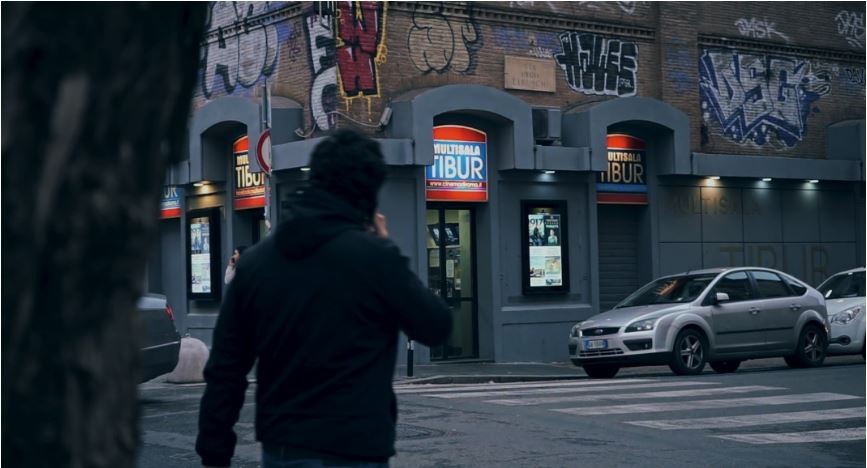He came to Italy 6 years ago, driven by his love of cinema and his dream of becoming a good director. After graduating in Theatre and Cinema from Rome's La Sapienza University, Boris Slavchev started working as a photographer. Today, the 29-year-old director has 2 documentaries and a feature film under his belt, as well as several international awards and an exhibition.
He currently lives in Rome and is shooting his second short feature, Nico's Way, a neo-realist story with an all-Italian cast. "I would very much like to be able to act as a kind of mediator between Bulgarian and Italian culture," Boris told Radio Bulgaria. So he started working with the Bulgarian Cultural Institute in Rome (BCI), photographing its events. This is how he came up with the exhibition "BCI through the lens of time", which was shown last year at the Bulgarian Exhibition Hall in the heart of the Italian capital.
The young director is the author of the documentary film "The Testament of Boris Hristov", dedicated to the Bulgarian basso opera singer, who worked most of his life in Italy and is considered one of the greatest opera performers of the 20th century. The film presents his life and work, but not only that: "In the second part we look at the legacy he left to our country - his house in Rome, where he founded the Boris Hristov Academy of Art and Culture. We trace the development of this Academy over time and how it continues to exist today. In the end, Boris Hristov left us something much more significant than the construction of the house and the bricks themselves. He left us an idea, an ideal - to develop not only opera but also Bulgarian art and culture in a country like Italy, which is one of the leading countries in this field," says Boris Slavchev.
Boris Slavchev's first short feature film is also about Bulgaria -more precisely about the Italian and Bulgarian mafia. The production is called "The Connection" and the main character is a Bulgarian mafioso who goes to Italy. The film won the award for Best Short Film - Action at the Fort Smith International Film Festival 2021 in the USA. It was nominated at the Osaka Film Festival and was a finalist at the Cefalù Film Festival in Sicily.

And what is the difference between the mafia in Bulgaria and the mafia in Italy?
"In my opinion, we cannot speak of a mafia in Bulgaria, but rather of organised crime. The Italian mafia has a longer history. It has a very clear hierarchy and structure. To enter, you have to be represented by other people, there is a ritual with elements of initiation. Whereas in Bulgaria it's much more open, it doesn't require the same loyalty as the Italian mafia, who call themselves 'men of honour' and have a whole code about how to look after their families and so on. In Bulgaria, organised crime is only about making a quick profit and does not present itself as "pursuing higher goals and values".
According to the director, Bulgaria is rarely talked about outside the country. People associate our country mostly with negative things. "For example, foreigners often tell me: 'Bulgaria is a nice country, but you are very corrupt'," says Boris, not hiding his disappointment.
"Bulgaria is hardly mentioned in everyday life in Italy. Very little is known about us. And I think that is our problem, that we do not promote ourselves. We have a lot to show the world, but unfortunately we have not found a way to communicate it," concluded Boris Slavchev.
The story of Kiril Jeliazkov’s life well and truly deserves the attention of the people who never give up on their dreams. Born in Yambol, Kiril discovered his artistic talent thanks to an art teacher who advised his parents – a driver and an..
Monika Evstatieva is a journalist who works as a senior producer in the investigations department of the American public radio network NPR . Born in Sofia, she dreamed of working in advertising as a child, but her work experience at a radio station in..
Do you like fairy tales? Although many people see this literary genre as being for children only, fairy tales hold timeless lessons that are still relevant. Even in today's harsh world, it is possible to live in a fairy tale. The real talent lies in..
I come to Bulgaria to recharge myself with new feelings - this is what Desislava Tsvetkova shares with us. She spent 14 years in the capitals of the..

+359 2 9336 661
